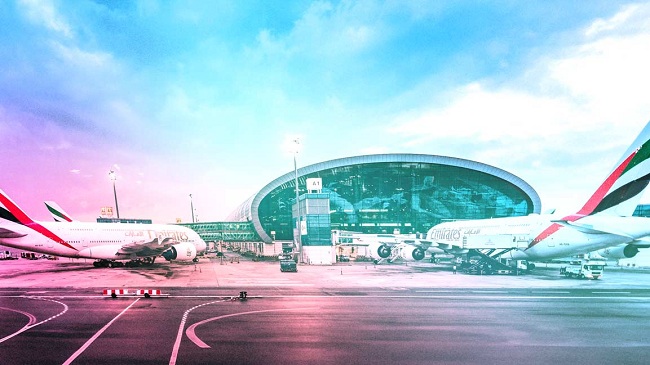Emirates Group and Dubai Airports in their latest released economic impact study have reaffirmed the central role aviation plays in Dubai’s economy, by quantifying its contributions and forecasting the sector’s upwards trajectory, based on financial and passenger growth projections for the sector.
The study, compiled by global research firm, Oxford Economics, includes an assessment of direct economic activity generated by the aviation sector, indirect activity generated through the sector’s supply chain, and induced activity supported through wage-funded consumption by the local aviation workforce.
The study also assesses the catalytic impact of tourism spending facilitated by the aviation sector in Dubai.
Commenting on the feat, the Chairman and Chief Executive, Emirates Airline & Group, and Chairman of Dubai Airports, His Highness Sheikh Ahmed bin Saeed Al Maktoum, said: “Under the leadership of His Highness, Sheikh Mohammed bin Rashid Al Maktoum, Dubai’s aviation sector has been a core pillar of our city’s economic growth strategy to date, and it will continue to play a key role in the D33 Economic Agenda.
“Supported by strong air connectivity, Dubai has a prominent presence on the global stage for trade, investments, tourism, and is a leading player in aviation and logistics. Our ambitious plans for Dubai World Central – Al Maktoum International airport, and our ongoing investments to expand capacity at Dubai International, will unlock further economic opportunities by supporting the projected demand for air transport. Our growth plans will generate even more skilled jobs, and also help drive innovation as we work with leading technology partners to develop future solutions to enhance travel experiences and make operations more efficient and secure.”
Speaking on aviation sector’s contribution to Dubai economy, the study emphasised how in 2023, Dubai’s aviation sector, consisting of Emirates Group, Dubai Airports (including Dubai International and Dubai World Central – Al Maktoum airports), and other aviation sector entities are estimated to have supported AED 137 billion (USD 37.3 billion) in gross value added (GVA), equivalent to 27 percent of Dubai’s GDP. This included the core economic impact of AED 94 billion, and AED 43 billion from the catalytic impact of aviation-facilitated tourism.
These figures are projected to increase steadily, with aviation activities facilitated by Emirates and Dubai Airports contributing AED 196 billion, or 32 percent of Dubai’s forecasted GDP by 2030 (in 2023 prices).
Aviation-led activity also accounted for 631,000 jobs across Dubai, equivalent to one in five jobs in the emirate in 2023. A further 185,000 aviation-linked jobs are expected to be created by 2030, with the total number of jobs supported by Dubai’s aviation sector forecast to grow to 816,000 jobs.
A previous economic impact report released by Oxford Economics in 2014 found that the aviation sector contributed to 27 percent of Dubai’s GDP and supported 417,000 jobs. While the latest results indicated the share of Dubai’s GDP has remained stable, the sector’s gross value added has increased in real terms, with the current figures reflecting faster growth across other sectors, as well as diversification in the wider economy over the past decade.
Raed Also: Sokoto students plead for Gov’s intervention in unpaid fees




